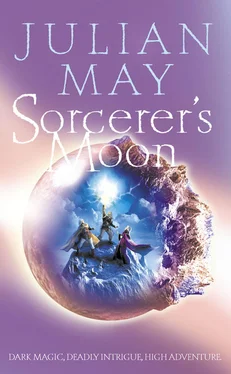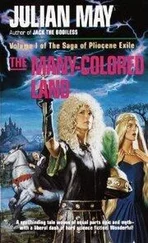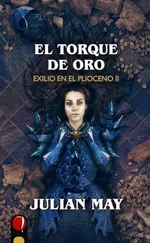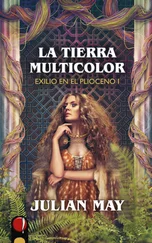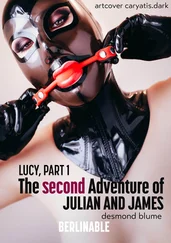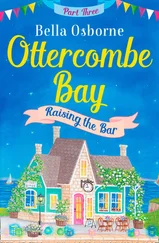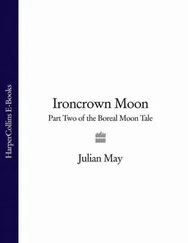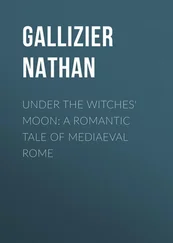After Bazekoy’s conquest and banishment of the Salka, which I have been told was accomplished while the Beaconfolk were distracted by quarreling amongst themselves, certain human settlers dared to mate with the Green Men of Blenholme, a race of very small nonhuman people, secretive and dangerous, who have large emerald eyes but otherwise resemble us closely. Like the other prehistoric island dwellers, the Green Ones possess inborn magical abilities. These they pass on to their parthuman descendants, even through many generations.
I do not have to explain to you the longstanding Cathran mistrust of magical ‘talent’. It dates to Bazekoy’s day and reflects his justified fear and antipathy toward the Beaconfolk sorcery used by the Salka as a weapon. The Didionites share a similar ambivalent attitude toward magickers, but the other two human nations of Blenholme are more broad-minded. In Tarn, the talented shaman-healers opted to focus their uncanny powers on activities that were mostly worthy and helpful. The land of Moss was a more sinister kettle of fish – a hotbed of malicious wizards who oppressed their untalented human fellows mercilessly until the celebrated Rothbannon whipped them into line and established the Conjure-Kingdom.
Moss retained a sizable population of Salka who largely shunned mankind. Rothbannon chose to live peaceably with the monsters rather than oppress them. He even became friendly with the Salka of the Dawntide Isles. After a time, the creatures so trusted this stern but scrupulously fair human ruler that they unwisely handed over to him their most cherished relics – a set of inactive moonstone amulets or sigils that became known as the Seven Stones of Rothbannon. These things were nothing less than physical channels of Beaconfolk sorcery. They gave tremendous power to the human user at the price of pain – and sometimes his very soul.
I do not have to reiterate the depressing history of Rothbannon’s descendants. They lacked his prudence and wielded the sigils in ways that often called down the wrath of the Lights. Your natural father’s paramour, Conjure-Queen Ullanoth, used moonstones to aid the establishment of the Sovereignty and further her own lust. The accusations made by Didion and by Cathra’s Lords of the South against Conrig and Ullanoth are shamefully true: the union of High Blenholme was built upon a foundation of unholy magic and adultery.
This was made possible by the fact that Conrig himself has inherited a small and nearly indetectable portion of magical talent, which gave him a fatal affinity with the beautiful Mossland witch. Even more dire, Conrig holds his Iron Crown under false pretenses: by law, no talented man may be Cathra’s king.
You, my dearest son, have no stain of talent whatsoever. I was assured of this by both Ansel Pikan and the sea-hag Dobnelu. Thus you are the rightful Sovereign of Blenholme, and no one – human or inhuman – may deny you’ your heritage…if you should choose to take it up.
There is one credible witness who may attest to your freedom from talent and to Conrig’s attainting. He is the same Deveron Austrey who resigned from his post as Royal Intelligencer after his conscience was sickened by Conrig’s treatment of me. I am told that he was convicted of treason but escaped to the Continent, where he has lived in obscurity for long years. Whether you seek him out and use his testimony to your advantage is up to you.
My beloved child, your future is in your own hands. If some day you ascend to the throne of Cathra and I still live, I hope we may be united on this earth. If this is not to be, I look forward to our eventual reunion in paradise and assure you of my prayers.
I am your mother,
MAUDRAYNE, Princess Dowager of Cathra
She sanded the parchment, took scissors and trimmed the sheet to its smallest possible compass, folded it, and sealed it with three tiny drops of unstamped wax. It was now a thing scarcely an inch square.
From her jewel case, filled with valuable baubles bestowed upon her by Tinnis Catclaw, she took a flat golden locket just large enough to contain the letter. Her desk yielded a small tin of cement, a sticky substance that dried hard and waterproof, used by the lodge’s guards to refasten loose fletching on their arrows. She had begged it from one of the kinder men, saying she wished to use it in binding a book. But instead, she carefully daubed a thin line of the black stuff around the edge of the locket, sealing it shut. No harm would come to the letter now, no matter how wet its messenger became.
Rusgann would decide where to hide the locket on her person when they met at breakfast and completed plans for the escape.
Maudrayne snuffed the candle on the desk and slowly rose. The only light now came from a low-burning oil lamp on a night-table beside her tester bed. Outside, the wind moaned and sleet rattled faintly against the heavily shuttered windows.
She began to disrobe for bed, standing before a long pier glass. The doughty noblewomen of Tarn scorned the hovering bodyservants of more effete southern ladies, and she was accustomed to deal with her own garments and hairdressing except when some special occasion necessitated elaborate attire.
She was two-score-and-four years of age, tall but fine-boned, and of unusual strength thanks to her love of walking, riding, and bow-hunting. The skin of her face was still creamy, unlined save for a faint crease between her brows. This imperfection, together with her dark-circled green eyes, like forest pools forever shaded from sunlight, were permanent legacies of her suffering.
She unfastened her opal necklace and golden plait-clasps and put them on the dressing table, then doffed the myrtle-green wool surcoat and girdled gown of apricot silk, arranging them neatly upon wooden perches. After removing low-cut houseshoes and gartered stockings, she let slip to the floor her sleeveless linen underkirtle and drawers and stood naked before the mirror, unbraiding her abundant copper tresses. Her breasts were still high and firm and her belly was unmarked by the stress of childbearing. Her shield of womanhood was as blazing bright as the hair of her head.
‘You are still comely, Maude,’ she whispered, gazing upon herself for a long moment before the reflection was blurred by an upwelling of tears as sharp as acid. ‘Your besotted gaoler adores you and showers you with every gift save liberty. So why does the memory of him, and him alone, still heat your blood, even though you try to crush and deny it? Is there no way your heart will ever escape his thrall?’
She went to the bed, drew up the covers, and pinched the lamp’s wick with moistened fingers. In the darkness, warm beneath a swansdown comforter, she found no comfort.
She thought: The letter will bring an end to it. Surely it will! I’ll be rid of this perfidious bond, this shameful yearning that should be revulsion, this love for him that should be hatred. It’ll be over. Dear God, let me forget Conrig and be at peace…else I’ll have to go to him.
And do what I must do.
Конец ознакомительного фрагмента.
Текст предоставлен ООО «ЛитРес».
Прочитайте эту книгу целиком, купив полную легальную версию на ЛитРес.
Безопасно оплатить книгу можно банковской картой Visa, MasterCard, Maestro, со счета мобильного телефона, с платежного терминала, в салоне МТС или Связной, через PayPal, WebMoney, Яндекс.Деньги, QIWI Кошелек, бонусными картами или другим удобным Вам способом.
